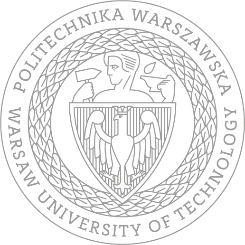Travel management optimization based on air pollution condition using Markov decision process and genetic algorithm (case study: Shiraz city)
DOI:
https://doi.org/10.5604/01.3001.0014.1746Keywords:
air pollution, dynamic optimization, genetic algorithm, Markov decision-making processAbstract
Currently, air pollution and energy consumption are the main issues in the transportation area in large urban cities. In these cities, most people choose their transportation mode according to corresponding utility including traveller's and trip’s characteristics. Also, there is no effective solution in terms of population growth, urban space, and transportation demands, so it is essential to optimize systematically travel demands in the real network of roads in urban areas, especially in congested areas. Travel Demand Management (TDM) is one of the well-known ways to solve these problems. TDM defined as a strategy that aims to maximize the efficiency of the urban transport system by granting certain privileges for public transportation modes, Enforcement on the private car traffic prohibition in specific places or times, increase in the cost of using certain facilities like parking in congested areas. Network pricing is one of the most effective methods of managing transportation demands for reducing traffic and controlling air pollution especially in the crowded parts of downtown. A little paper may exist that optimize urban transportations in busy parts of cities with combined Markov decision making processes with reward and evolutionary-based algorithms and simultaneously considering customers’ and trip’s characteristics. Therefore, we present a new network traffic management for urban cities that optimizes a multi-objective function that related to the expected value of the Markov decision system’s reward using the Genetic Algorithm. The planned Shiraz city is taken as a benchmark for evaluating the performance of the proposed approach. At first, an analysis is also performed on the impact of the toll levels on the variation of the user and operator cost components, respectively. After choosing suitable values for the network parameters, simulation of the Markov decision process and GA is dynamically performed, then the optimal decision for the Markov decision process in terms of total reward is obtained. The results illustrate that the proposed cordon pricing has significant improvement in performance for all seasons including spring, autumn, and winter.
References
Ahuja, H., & Batra, U., 2018. Performance enhancement in requirement prioritization by using least-squares-based random genetic algorithm. In Innovations in Computational Intelligence (pp. 251-263). Springer, Singapore.
Amirgholy, M., Rezaeestakhruie, H., & Poorzahedy, H., 2015. Multiobjective cordon price design to control long run adverse traffic effects in large urban areas. NETNOMICS: Economic Research and Electronic Networking, 16(1-2), 1-52.
Azari, K.A., Arintono, S., Hamid, H., & Rahmat, R.A.O., 2013. Modelling demand under parking and cordon pricing policy. Transport Policy, 25, 1-9.
Broaddus, A., Litman, T. & Menon, G., 2009. Training document on transportation demand management. Sustainable Urban Transport Project (www.sutp.org) and GTZ (www.gtz.de).
Buontempo, F., 2019. Genetic algorithms and machine learning for programmers: create AI models and evolve solutions. The Pragmatic Bookshelf.
Cavallaro, F., Giaretta, F., & Nocera, S., 2018. The potential of road pricing schemes to reduce carbon emissions. Transport Policy, 67, 85-92.
Chen, Y., Lawell, C.Y.C.L., Muehlegger, E.J., & Wilen, J.E., 2017, Modeling Supply and Demand in the Chinese Automobile Industry. In 2017 Annual Meeting, July 30-August 1, Chicago, Illinois (No. 258557). Agricultural and Applied Economics Association.
Dai, H., Yao, E., & Zhao, R., 2015. Research on congestion pricing in multimode traffic considering delay and emission. Discrete Dynamics in Nature and Society.
De Palma, A., & Lindsey, R., 2009. Traffic congestion pricing methods and technologies.
Eiben, A.E. and Smith, J.E., 2003. Introduction to evolutionary computing (Vol. 53, p. 18). Berlin: Springer.
Ferguson, E., 2018. Travel demand management and public policy. Routledge.
Ferrarese, M., 2016. A perceptual-behavioural approach with non-parametric experimental coefficient for urban parking business design. Archives of Transport, 37(1), 15-30.
Howard R. A., 1960, Dynamic programming and Markov processes, (1th ed.). Cambridge: The MIT Press.
ITSR, (2001), The proposed bus transportation system for the City of Shiraz, Institute for Transportation Studies and Research of Tehran and Shiraz Comprehensive Transportation Studies, Report No. 80-08, Sharif University of Technology, Tehran (in Farsi).
Kelly, F.J., and Zhu, T., 2016. Transport solutions for cleaner air. Science, 352(6288), 934-936.
Kramer, O., 2017. Genetic algorithms. In Genetic algorithm essentials (pp. 11-19). Springer, Cham.
Lyons, T.J., Kenworthy, J.R., Moy, C. & Dos Santos, F., 2003. An international urban air pollution model for the transportation sector. Transportation Research Part D: Transport and Environment, 8(3), 159-167.
McCord, M.R., 1987. Urban transportation networks: Equilibrium analysis with mathematical programming methods: Prentice-Hall, Inc., Englewood Cliffs, NJ, USA.
Mirjalili, S. (2019). Genetic algorithm. In Evolutionary algorithms and neural networks (pp. 43-55). Springer, Cham.
Pal, S.K. & Wang, P.P., 2017. Genetic algorithms for pattern recognition. CRC press.
Poorzahedy H., AghaBabazadeh B., Babazadeh A., (2016), Dynamic network pricing to contain urban air pollution in stochastic environment, Scientia Iranica, 23, 2005-2022.
Sawicki, P., Kiciński, M., & Fierek, S., 2016. Selection of the most adequate trip-modelling tool for integrated transport planning system. Archives of Transport, 37(1), 55-66.
Sendek-Matysiak, E., 2019. Multi-criteria analysis and expert assessment of vehicles with different drive types regarding their functionality and environmental impact. Scientific Journal of Silesian University of Technology. Series Transport, 102, 185-195.
Verhoef, E.T., 2005. Second-best congestion pricing schemes in the monocentric city. Journal of Urban Economics, 58(3), 367-388.
Downloads
Published
Issue
Section
License
Copyright (c) 2024 Archives of Transport journal allows the author(s) to hold the copyright without restrictions.

This work is licensed under a Creative Commons Attribution 4.0 International License.









